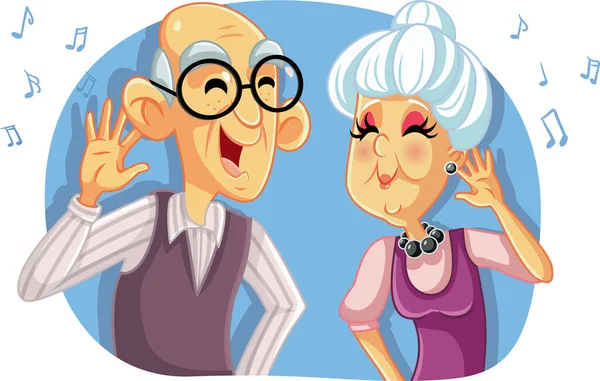The Healing Power of Music for Elderly: A Journey Through Time

Music therapy sessions create meaningful connections for seniors, stimulating memories and emotions that may otherwise remain dormant.
As we age, many facets of our lives transform—our relationships, cognitive abilities, and physical capacities. Yet remarkably, our connection to music often remains undiminished, sometimes even strengthening with time. For elderly individuals, music isn’t merely entertainment; it serves as a powerful therapeutic tool with profound neurological, psychological, and social benefits.
Recent neuroscience research reveals why music holds such transformative potential for seniors. When melodic tones reach our ears, they trigger a neural symphony across multiple brain regions—some of which remain relatively preserved even in conditions like dementia and Alzheimer’s disease. This unique preservation of musical processing creates remarkable therapeutic opportunities for our aging population.
“Music is the only thing that can reach in and press ‘play’ on a memory that seemed lost forever. I’ve seen patients who cannot remember their own children suddenly sing every word to a song from their youth.” — Dr. Michael Thaut, Neurologic Music Therapy pioneer
In this article, we’ll explore the science behind music’s healing power for the elderly, examine its remarkable effects on memory and cognition, and provide practical applications for incorporating musical interventions into care for seniors.
Quick Navigation
The Neuroscience Behind Music and Aging
When we listen to music, our brains engage in a remarkable symphony of neural activity. For elderly individuals, this neurological response offers unique benefits due to the way musical processing pathways remain relatively intact, even when other cognitive functions may decline.
Preserved Musical Networks
Unlike many cognitive functions that deteriorate with age-related conditions, musical processing involves neural networks that often remain functional much longer. Research from Northwestern University demonstrates that the cerebellum—a region critical for musical memory—maintains its functionality even in advanced stages of dementia.
This preservation creates a unique “access point” to memories and emotions that might otherwise seem unreachable. Even when verbal communication becomes difficult, the ability to recognize and respond to familiar melodies often persists.
Multi-Regional Activation
When seniors engage with music, multiple brain regions work in concert:
Auditory Cortex
Processes the sound’s basic properties and begins pattern recognition of familiar melodies
Cerebellum
Maintains timing and rhythm processing, often preserved even in cognitive decline
Limbic System
Generates emotional responses to music, including the hippocampus that bridges music and memory
Prefrontal Cortex
Processes musical structure and anticipates melodic progression, stimulating cognitive function
This multi-region activation creates a “whole-brain workout” that can be especially beneficial for maintaining neural pathways in older adults.
Neuroplasticity and Music
Perhaps most remarkably, engaging with music promotes neuroplasticity—the brain’s ability to form new neural connections—even in older adults. Studies show that regular musical activities can lead to measurable structural and functional brain changes, demonstrating that it’s never too late for musical intervention to benefit cognitive health.
Research published in the Journal of Alzheimer’s Disease found that music-based interventions actually promote brain plasticity in the elderly brain, potentially delaying cognitive decline and improving overall neural function.
How Different Musical Elements Affect the Brain
Rhythm
Activates motor regions and aids movement coordination, potentially helping seniors with mobility issues
Melody
Engages the right hemisphere and auditory cortex, strongly linked to emotional memory
Harmony
Activates frontal lobe regions associated with complex cognitive processing
Lyrics
Stimulate language centers and can help preserve verbal abilities and semantic memory
Music’s Remarkable Effects on Memory
One of music’s most profound benefits for elderly individuals is its unique ability to unlock memories that otherwise seem inaccessible. This phenomenon isn’t just anecdotal—it’s supported extensive neuroscience research showing how musical memories persist even when other cognitive functions decline.
The Preservation of Musical Memory
Studies from the Brain and Creativity Institute at USC have demonstrated that musical memories are stored differently than other types of memories. They appear to be distributed across the brain rather than localized in a single region, making them more resistant to the neurodegeneration associated with conditions like Alzheimer’s disease.
This explains the remarkable phenomenon where individuals with advanced dementia who struggle to recognize family members can still recall and sing songs from their youth with perfect accuracy.
“The long-term memory of music remains intact until the very late stages of disease progression. It is currently unknown why Alzheimer’s disease affects this area last, but this preservation creates a unique therapeutic window.”
Autobiographical Memory Enhancement
Music from personally significant periods—especially ages 15-25, known as the “reminiscence bump”—can trigger cascades of autobiographical memories. When elderly individuals listen to songs from their formative years, they often experience vivid recollections of specific events, people, and emotions from those periods.
This phenomenon can be therapeutically applied through what music therapists call the “Musical Autobiography” approach, where personalized playlists are created using songs tied to important life events.
Procedural Memory and Learned Skills
Musical training and experiences engage procedural memory—the memory system responsible for skills and routines—which often remains intact longer than declarative memory in aging. Elderly musicians who learned to play instruments in their youth can often still perform even when experiencing significant cognitive decline.
This preservation of musical skill extends beyond just playing instruments. The ability to dance to familiar rhythms, tap along with beats, and sing well-known songs frequently persists in individuals with dementia.
Evidence from Neuroimaging
Functional MRI studies show distinct patterns of brain activation when elderly individuals, including those with cognitive impairment, listen to familiar versus unfamiliar music. Familiar music activates not only auditory regions but also areas associated with autobiographical memory, emotion, and self-reference.
These brain scans provide visual confirmation of what caregivers and music therapists have observed: music creates neural pathways to memories that might otherwise remain inaccessible.
Interactive: Test Your Knowledge
Which of the following is TRUE about music and memory in elderly individuals?
Emotional and Social Benefits of Music for Seniors
Beyond its cognitive effects, music provides profound emotional and social benefits for elderly individuals, addressing common challenges of aging like isolation, depression, and loss of identity.
Emotional Regulation and Well-being
Music activates the brain’s reward centers, triggering the release of dopamine and other neurotransmitters associated with pleasure and positive emotions. This neurochemical response can help reduce symptoms of depression and anxiety, which affect up to 40% of nursing home residents.
Studies have shown that regular music-based interventions significantly decrease cortisol levels (a stress hormone) while increasing oxytocin (associated with bonding and connection). This biochemical shift creates measurable improvements in mood, with effects that often last hours beyond the musical experience itself.
Social Connection and Community
Music naturally brings people together, creating opportunities for meaningful social interaction—something vital for elderly individuals who often face increasing isolation. Group singing, dance sessions, and music appreciation classes provide structured social engagement that combats loneliness.
The synchronized nature of musical activities—singing together, moving to the same rhythm—creates what researchers call “collective effervescence,” a shared emotional experience that strengthens social bonds and fosters a sense of belonging. For seniors in care facilities, these musical communities can transform the social environment.
Community Music Programs Show Remarkable Results:
- Increased social interaction outside of musical activities
- Reduced feelings of isolation and loneliness
- Greater resident engagement in other group activities
- Improved relationships between residents and caregivers
- Enhanced quality of life measurements across multiple domains
Identity Reinforcement and Dignity
For elderly individuals facing cognitive decline, maintaining a sense of identity becomes increasingly challenging. Music connected to their personal history serves as an anchor for self-recognition and cultural identity, reinforcing who they are beyond their current limitations.
When seniors with dementia respond to personally meaningful music, they often temporarily regain aspects of their personality and social skills that seemed lost. Family members frequently report moments of reconnection during these musical experiences, describing them as glimpses of the person they knew before the disease progression.
“When my mother hears songs from her youth, she becomes herself again. Her eyes light up, she smiles, she remembers details about her life that she otherwise cannot access. In those moments, we have her back.” — Daughter of an Alzheimer’s patient
How Different Musical Genres Affect Emotional States
Classical Music
Often promotes relaxation and stress reduction; complex compositions can stimulate cognitive engagement
Folk and Traditional Songs
Reinforce cultural identity and often trigger strong autobiographical memories
Popular Music from Youth
Strong emotional resonance and identity reinforcement; most effective for memory stimulation
Religious or Spiritual Music
Provides comfort, transcendence, and connection to deeply held values and beliefs
Music Therapy Applications for Seniors
Music therapy is a clinical, evidence-based intervention that uses music to address specific health objectives. For elderly individuals, music therapists design personalized programs targeting cognitive, emotional, and physical goals.
Neurologic Music Therapy
Neurologic Music Therapy (NMT) is a specialized approach based on neuroscience research about how the brain processes music. For elderly patients, NMT techniques leverage the preserved musical processing pathways to stimulate broader neural function.
Key NMT techniques for seniors include:
Rhythmic Auditory Stimulation (RAS)
Uses rhythmic cues to improve mobility and gait in patients with Parkinson’s and stroke recovery
Musical Mnemonics Training
Employs musical patterns to enhance memory encoding and recall of important information
Vocal Intonation Therapy
Helps restore speech functions leveraging the connection between singing and language
Therapeutic Instrumental Music Performance
Uses instrument playing to improve motor skills and coordination
Music Interventions for Dementia
For individuals with dementia and Alzheimer’s disease, personalized music interventions show remarkable efficacy in improving quality of life, reducing agitation, and enhancing moments of lucidity.
Music & Memory Program
This evidence-based approach provides personalized music playlists to individuals with dementia. The program has demonstrated significant benefits in multiple studies:
- 52% reduction in need for antipsychotic medications
- Decreased agitation and sundowning behaviors
- Improved mood and cooperation with care
- Enhanced ability to communicate and connect with others
Music interventions are particularly valuable during difficult care moments, such as bathing, mealtime, or medical procedures, when patients with dementia often experience increased anxiety and confusion.
Palliative and End-of-Life Care
Music therapy plays a special role in palliative care settings, providing comfort, reducing pain perception, and supporting emotional processing for both patients and their families. Research has shown that appropriate music interventions can reduce the need for pain medication while increasing quality of life measurements.
Music therapists working in hospice settings report that music often creates meaningful final interactions between patients and loved ones. Shared musical experiences can facilitate important conversations, expressions of love, and peaceful transitions.
“In end-of-life care, music becomes a bridge when words fail. I’ve witnessed families share powerful moments of connection through songs that held special meaning throughout their lives together.” — Hospice Music Therapist
Comparing Music Therapy and Music Recreation
| Music Therapy | Music Recreation |
|---|---|
| Administered trained, certified music therapists | Can be facilitated activity directors or volunteers |
| Individualized treatment plans with specific clinical goals | General goal of enjoyment and engagement |
| Evidence-based interventions based on neuroscience | Based on general benefits of music participation |
| Progress is systematically evaluated and documented | Less structured evaluation of outcomes |
| May be covered insurance or Medicare in some cases | Typically funded through activity programming |
Both approaches have value, but understanding the distinction helps in selecting appropriate services for specific needs.
Practical Implementation Guide
Implementing music interventions for elderly individuals doesn’t always require professional music therapy services. Family members, caregivers, and senior facilities can incorporate evidence-based musical approaches with these practical strategies.
Creating Personalized Playlists
One of the most effective music interventions is creating personalized playlists tailored to an individual’s musical preferences and personal history. Here’s how to develop meaningful musical collections:
Step-by-Step Playlist Creation:
- Interview the person about their musical preferences while they still can communicate them, or consult family members
- Focus on music from ages 15-25, a period when musical memories form strong connections
- Include songs associated with significant life events (weddings, cultural celebrations, etc.)
- Consider occupational music connections (military service songs, work-related music)
- Include cultural, religious, or ethnic music that connects to identity
- Organize selections mood or purpose (energizing, calming, memory stimulation)
- Use a simple playback device with easy controls or headphones if appropriate
Digital music streaming services make it easier than ever to create and manage these collections, but for some seniors, familiar physical formats like CDs may be more accessible and comfortable to use.
Timing and Context for Musical Interventions
Strategic timing of music can maximize its benefits for elderly individuals. Consider implementing music during these key moments:
Morning Routines
Energetic, familiar music can help establish a positive tone for the day and assist with orientation
Before Challenging Care Tasks
Calming, preferred music 20-30 minutes before bathing or medical procedures reduces anxiety
Sundowning Periods
Soothing music during late afternoon/early evening can minimize agitation and confusion
Before Bedtime
Gentle, slow-tempo music as part of a consistent sleep hygiene routine improves sleep quality
Consistency in musical routines creates predictability that can be especially comforting for individuals with cognitive impairment.
Interactive Music Activities
Beyond passive listening, interactive musical engagement offers enhanced benefits activating more brain regions and encouraging social connection:
Sing-Along Sessions
Even those with limited verbal abilities often retain singing capabilities; group sing-alongs with familiar songs promote social connection and language stimulation
Simple Instrument Play
Accessible percussion instruments (drums, tambourines, shakers) allow for active participation regardless of musical training
Movement to Music
Chair dancing, guided movement, or simple dance steps promote physical activity and coordination while enhancing mood
Music-Based Reminiscence
Using music to prompt storytelling and memory sharing, creating opportunities for meaningful conversation
Technology Tools for Music Implementation
Specialized Music Players
Simple, large-button music players designed for seniors with cognitive or visual impairments
Music Streaming Services
Platforms with curated playlists organized era, genre, or mood; some services now offer senior-focused collections
Music Therapy Apps
Applications designed specifically for therapeutic music implementation with timing features and specialized content
Smart Speakers
Voice-controlled devices that allow for hands-free operation, beneficial for those with mobility limitations
Research and Case Studies
The benefits of music for elderly individuals are supported a growing body of rigorous research. Here we highlight key studies and real-world examples demonstrating music’s impact across various domains of senior health.
Landmark Research Findings
Northwestern University Study (2022)
Researchers found that music memories often remain intact in the cerebellum even as other memory types deteriorate. Brain scans showed distinct activation patterns in response to familiar music in patients with advanced dementia.
Key finding: Musical memory persists due to its distribution across multiple brain regions rather than concentration in areas typically affected early in dementia.
University of Michigan National Poll (2024)
A comprehensive survey of adults aged 50-80 found that 75% reported music helps them relieve stress or relax, and 65% said it helps their mental health or mood.
Key finding: The therapeutic benefits of music are widely experienced older adults across diverse backgrounds, suggesting broad applicability for music interventions.
Brown University Music & Memory Research (2018)
A large-scale implementation study across 98 nursing homes found that personalized music programs resulted in a 52% reduction in antipsychotic medication use and a 42% decrease in anti-anxiety medication use among residents with dementia.
Key finding: Music interventions represent a potentially effective non-pharmacological alternative for managing behavioral symptoms in dementia care.
Compelling Case Studies
Henry’s Story
Perhaps the most famous case study comes from the documentary “Alive Inside,” which follows Henry, a nursing home resident with advanced dementia who had been largely non-responsive for years. When provided with personalized music from his youth, Henry dramatically “awakens,” becoming animated, verbal, and emotionally expressive.
This transformation wasn’t temporary—staff reported lasting improvements in Henry’s engagement, mood, and communication abilities after regular musical interventions became part of his care.
The Choir for Memory Loss
A community choir specifically for individuals with early-stage dementia and their caregivers demonstrated significant benefits beyond just musical enjoyment. Over a two-year study period, participants showed:
- Improved cognitive test scores compared to non-musical control groups
- Enhanced quality of life measurements for both patients and caregivers
- Reduced caregiver burden and stress levels
- Sustained social engagement even as cognitive decline progressed
Ongoing Research Directions
The field of music neuroscience and aging continues to expand, with several exciting research directions currently being explored:
Predictive Biomarkers
Researchers are investigating whether musical memory preservation might serve as a predictive biomarker for dementia progression and treatment responsiveness
Music-Based Cognitive Training
Studies examining whether structured musical activities might serve as cognitive training to delay onset or slow progression of cognitive decline
Technology-Enhanced Delivery
Development of AI-driven systems to adapt musical interventions in real-time based on physiological and behavioral responses
Cross-Cultural Effectiveness
Examining how cultural context affects musical memory preservation and therapeutic efficacy across diverse populations
Conclusion: Music as a Lifelong Companion
The healing power of music for elderly individuals represents one of the most profound examples of how art and science converge to enhance human well-being. As we’ve explored throughout this article, music offers unique benefits across cognitive, emotional, and social domains of aging—benefits supported both compelling research and countless personal stories.
What makes music particularly valuable in senior care is its remarkable accessibility. Unlike many interventions that become less effective as cognitive decline progresses, music often remains impactful even in advanced stages of dementia. It creates moments of connection when other approaches fail, offering windows into preserved aspects of identity and memory.
For families and caregivers navigating the complex journey of aging, music provides a practical, non-pharmacological tool that can significantly enhance quality of life. Whether implemented through formal music therapy programs or thoughtfully integrated into daily routines, musical interventions offer meaningful benefits with minimal risks.
As research in this field continues to advance, we can expect even more sophisticated understanding of how and why music affects the aging brain, leading to increasingly targeted approaches. Yet even as the science progresses, the fundamental truth remains: music connects us to our deepest memories and emotions throughout the entire lifespan.
“Music gives a soul to the universe, wings to the mind, flight to the imagination, and life to everything.” — Plato
By embracing music as a therapeutic resource for our aging population, we honor both the science that explains its effects and the deeply human experience of finding meaning, connection, and joy through melody, rhythm, and song—a journey that truly spans a lifetime.
You May Also Like
How to Handle Ego as an Artist
Explore the delicate balance between confidence and humility that artists must navigate to achieve creative growth and career success.
Read more →The Benefits of Learning French Through Music
Discover how musical immersion can accelerate language acquisition and deepen your connection with French culture.
Read more →Unlock Your Full Potential with Binaural Gamma Waves
Learn how specific sound frequencies can enhance focus, creativity, and cognitive performance across all ages.
Read more →


